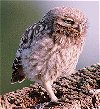|
GreenPlaces
|
|
Wildlife and conservation news from around the U.K. |
|
Menu
|
 |
|
||||||
|
Dr Humphrey Crick, Senior Ecologist at the BTO, feels that we urgently need to fill the gaps in our knowledge: "It is really quite scandalous how little we know about our populations of Tawny Owls and our other owl species. If we are not careful they could begin to disappear without anybody really noticing." The BTO has identified three areas of work that are important: For Tawny Owls, the BTO intend to ascertain which method of surveying is best. Tawny Owls are noisy in autumn, and it is thought this may be a good time to conduct surveys. The RSPB describe their calls as: "The male calls with a hooting 'hooo-hoo-hooo', which is far-carrying. Female usually replies with a hoarser hoot. Also a 'ke-wick' call." The BTO want to hear from birdwatchers across the country to find out whether or not autumn is the best time to survey the Tawny Owl, they would also like to hear of any recorded sightings. An attempt is being made to re-survey sites, last checked in 1989, to find out what has changed. An estimated £5000 per year is required for the continuation of the Barn Owl Monitoring Programme (BOMP), set up in 2001, to keep the programme running until 2007 and to provide better feedback to volunteers. The traditionally difficult monitoring of the Short-eared Owl, which has the smallest population of British Owls and which moves about between breeding seasons, is also to be addressed by this programme. Please note that Owls are a protected species under the Wildlife & Countryside Act, 1981 and that it is an offence to intentionally or recklessly disturb a nest building Owl, or one with chicks. Don't get into trouble while trying to help. |
|
|
Links |
|
|
British Trust for Ornithology (BTO) Owl Appeal |
|
|
British Trust for Ornithology (BTO) Garden Birdwatch Project |
|
|
RSPB Owl information |
|
|
The Barn Owl Centre of Gloucestershire. UK Law Summary |
|
|
Images |
|
|
Tawny Owl, Tommy Holden - BTO |
|

 There are five species of Owl in Britain; the Barn Owl (Tyto alba) and the Short-eared Owl (Asio flammeus) are both on the Amber List, implying their is some concern over their population status. Not much is known for sure about the numbers of Tawny Owl (Strix aluco) and Long-eared Owl (Asio otus) as they are nocturnal, but it is thought that their populations are in decline. The fifth British species, the Little Owl (Athene noctua), inhabits lowland farmland and is susceptible to any change in the management of this land.
There are five species of Owl in Britain; the Barn Owl (Tyto alba) and the Short-eared Owl (Asio flammeus) are both on the Amber List, implying their is some concern over their population status. Not much is known for sure about the numbers of Tawny Owl (Strix aluco) and Long-eared Owl (Asio otus) as they are nocturnal, but it is thought that their populations are in decline. The fifth British species, the Little Owl (Athene noctua), inhabits lowland farmland and is susceptible to any change in the management of this land.